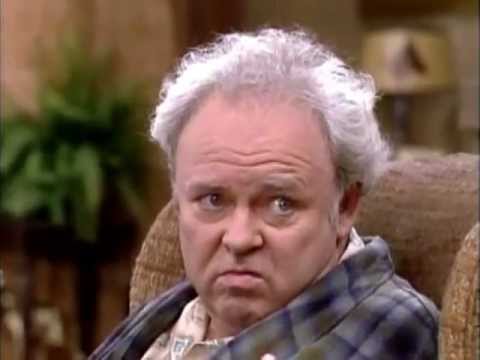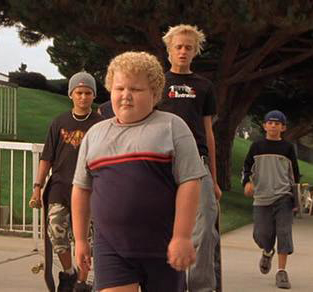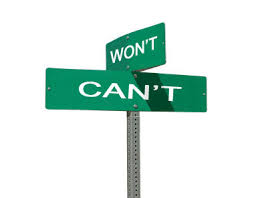Archie Bunker was, for some of us, hysterically funny even though he was a bigot. Similarly, Blazing Saddles ripped through sacred social territory paying absolutely no attention to the rules of society of the day, still leaving us in stitches.
I’ve been reading about three sources of humor:
- Incongruity: When something is so far from our expectation that the simple surprise of it makes us laugh. (I immediately think of what we call “slapstick,” but there are other examples).
- Relief: When some occurrence or utterance literally relieves the emotional or psychological tension of the moment and we burst out laughing.
- Superiority: When we laugh at someone or something because we feel superior to the person or situation that is the target of the joke or humorous narrative. (People can be stupid, so of course we laugh at their stupidity; in doing so we elevate ourselves, if even a little, in our laughter.)
It’s this third source of humor that I refer to with Archie Bunker and Mel Brooks’ sense of humor (although some of Brooks’ work was obviously incongruity).
Humor is a powerful tool. It can connect people, relieve tension, and challenge societal norms. However, when humor crosses the line into demeaning territory, it can have negative effects, generating harmful stereotypes and contributing to the normalization of hate speech. I’ve spent some time exploring the relationship between demeaning humor and hate speech, and why it might be valuable to be aware of this connection.
Demeaning humor often targets marginalized groups, relying on stereotypes and prejudice for its punchlines. Whether through jokes about race, gender, sexuality, disability, or any other aspect of identity, such humor emboldens existing power dynamics and reinforces discriminatory attitudes. While some may argue that it’s all in good fun, the impact of such humor goes beyond mere laughter—it can contribute to real-world harm.
At its core, hate speech is any form of expression that seeks to demean, intimidate, or incite violence against a particular group based on some identity: The ultimate superiority gambit. While demeaning humor may not always be as explicit as outright hate speech, it often serves as a gateway, normalizing harmful attitudes and desensitizing individuals to the suffering of others. When people are exposed to derogatory jokes on a regular basis, I’ve seen it shape their perceptions and attitudes towards the targeted group, making them more susceptible to participating in similar humor or even discriminating behavior.
Demeaning humor can create a hostile environment for those who are already marginalized, further perpetuating feelings of exclusion, alienation, and inferiority. Imagine being the target of jokes that mock your race, gender, or sexual orientation; that’s not just a matter of hurt feelings, but a reinforcement of systemic inequalities that have real-world consequences.
It’s important to recognize that the line between humor and hate speech can be pretty fuzzy. Context, intent, and power dynamics all play a role in determining whether a particular joke crosses that line. What may seem harmless to one person could be deeply offensive and harmful to another. Therefore, there’s value in approaching humor with some sensitivity and empathy, considering the perspectives and experiences of those who may be affected by it. This requires a great deal of what I call presence. Fortunately, I don’t believe any of us make a living at stand-up comedy.
Furthermore, the impact of demeaning humor extends beyond individual transactions to broader social norms. When comedians, media personalities, or public figures use their platform to push stereotypes and promote harmful attitudes, they can contribute to the general acceptance of discrimination within society. This, in turn, can energize individuals to express their prejudices more openly, creating a ripple effect that reinforces systemic inequalities.
We’ve all heard the superiority-generated humor. It’s all over late-night TV, comedy specials, and even TV shows for kids. In order to stay aloof from getting sucked in to some of this material, I want to reflect on my own attitudes and behaviors, recognizing the potential harm caused by their words and actions. I want to watch myself watching this material and decide, not from my ‘superior’ position that that’s funny, but from my observer post that allows me to see how it could be funny to some and not so funny to others.
From my childhood: “Sticks and stones may break my bones, but words can never hurt me.” It’s how I developed thick skin. I was generally an overweight non-athletic boy. Playground humor was always superiority based, looking back, and considering most of my playmates’ transactions with me, I was perceived as inferior. Somewhere along the line I developed thick skin, and the less I reacted to these humorous barrages the less I heard them.
I don’t believe media outlets, comedy clubs, and other platforms will take social responsibility for the content they promote. It’s their business model. If it didn’t make money for them, they’d change it. And so, some of it does probably perpetuate harmful stereotypes and contribute to the normalization of hate speech. But who expects media to take accountability?
It does take two to tango.
The superiority humorist is only superior if the target also believes that. And the target can engage in such a way as to protect himself with the thickness of his skin. A little less demeaning humor and a little more sensitivity can go a long way toward World Peace.
“Take my wife. Please.” (Let’s see who contacts Margaret first!)




